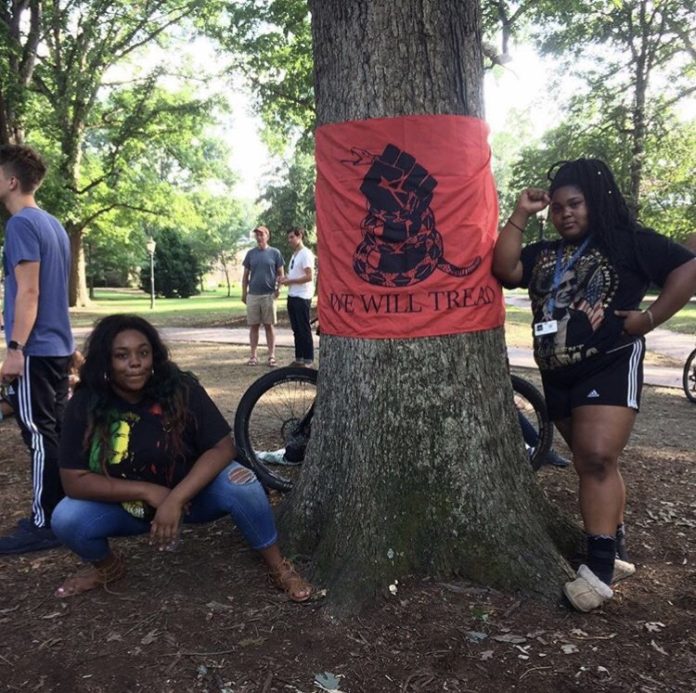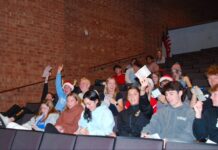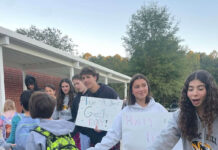
The Chapel Hill-Carrboro City Schools (CHCCS) school board voted unanimously this summer to ban the Confederate ag from schools within their jurisdiction. The decision came on August 17, only days after a woman was killed by white nationalists in Charlottesville.
School board chair James Barrett cited the white supremacist rally and violence in Charlot- tesville as a main reason for the ban.
“The recent events in Charlottesville and other places indicate more violence is on the horizon, and this measure was taken to ensure our students are not in harm’s way,” he said.
The updated school board policy prohibits the “display of symbols on flags, clothing, lit- erature, online, or in other areas, that school officials conclude pose a risk of serious disruption to school, including the swastika, the Confederate battle flag, and other symbols affiliated with violent protest and violence against minority groups, women, LGBTQ people, people with disabilities and other protected groups.”
Students at Chapel Hill High School seem to have reached a similar consensus on the ban. “A lot of people are offended to see [the Confederate flag],” sophomore Eve Carter said, declaring her support for the school board’s decision. Sophomore Greta Gaertner is also in favor of the ban. “Some people don’t feel safe with [these symbols]. Schools are meant to be safe for everyone,” she said.
American History teacher Parker Whitehouse also believes the ban creates a better environment for CHCCS students. “[The Confederate flag is] a symbol that can alienate certain students. It’s a flag that, essentially, is a symbol of hatred because it stands for the subjugation of an entire race, so for us to remove it is a strong statement,” he said.
Although the flags have been removed from school, Whitehouse thinks we should not stop talking about them. “I think it’s vital to have these discussions on how we view the Confederate flag and Confederate monuments,” he said. “Giving students the opportunity to talk about that, especially the opportunities to look into the past and to study why those monuments were built in the first place, tells us a lot about history in general. It tells us about who we honor and, more specifically, why we honor them.”
Whitehouse was unsurprised by the school board’s hesitation to ban the flag prior to the events of Charlottesville.
“I think, unfortunately, we kind of live in a reactionary nation. We tend to wait until some- thing happens for us to rally behind something,” he said. “We needed an event like [Charlottesville] to kind of push us along.”











